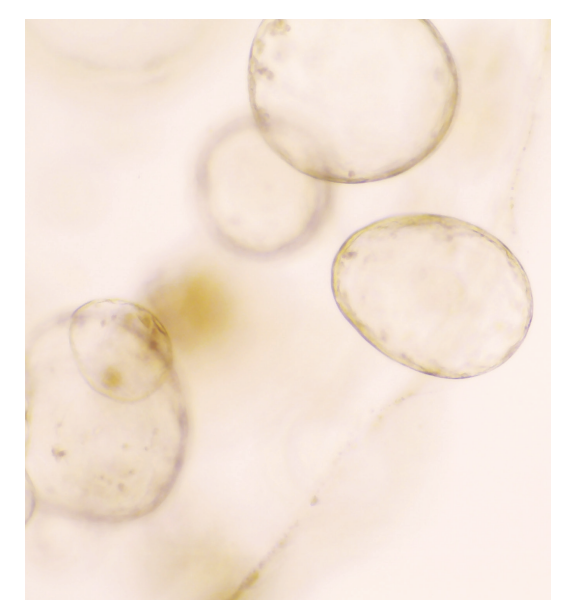Institute staff and students get together at this year’s colloquium for two days of exciting science, networking and social activities in beautiful Buxton
This year heralded a fresh start for the Cancer Research UK Manchester Institute Colloquium. Having together faced and overcome significant challenges these past five years – from the fire at the Institute and resulting relocations, to the pandemic and the following budget cuts, and the huge emotional impact these events have had on everyone – we were finally able to hold the colloquium at a venue outside our workplace.
As an Institute, we believe offsite meetings provide significant benefits for staff. They help to strengthen relationships amongst colleagues, improve institute culture, and enhance focus and creativity. So, we were very excited to be going away together again.
We teamed up with the CRUK National Biomarker Centre to relaunch the 2024 Colloquium at the rather grand Palace Hotel in Buxton. Home of Buxton Water, this attractive thermal spa town nestles in the centre of the beautiful Peak District, surrounded by the UK’s first National Park. Ornamental gardens and world-famous Georgian and Victorian architecture provided an impressive backdrop to our event, which was greatly enjoyed by all – and only topped by spectacular views of the northern lights!
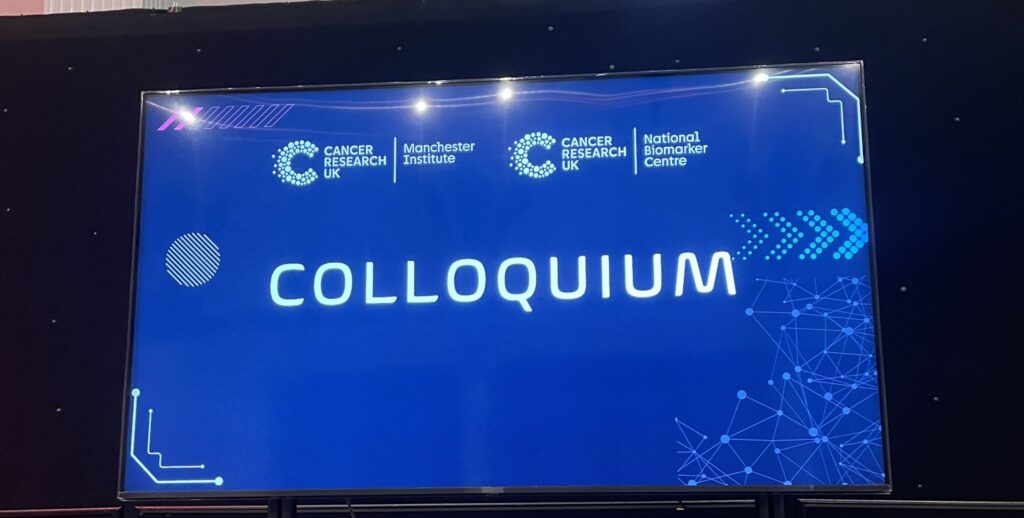
The two-day event included two plenary talks – from Jos Jonkers (NKI) and Margaret Frame (University of Edinburgh) – 2nd year talks from our PhD Students, presentations from our research groups and core facilities, and two lively poster sessions alongside social events. We further bonded during a group hike up to local beauty spot Grin Low Tower – or Solomon’s Temple as it is locally known – where we enjoyed glorious views of the Peak District.
Opening the Colloquium, Institute Director Caroline Dive gave a warm welcome to everyone, celebrating our resilience and recent achievements while setting the scene over the science-packed two days.
New to this year, everyone giving a talk selected a favourite song which was played as they approached the stage. This added a great fun element that revealed much about the speaker! Cleverley, some even linked the song to their research.
We were treated to a variety of interesting and entertaining talks on fundamental, translational and clinical research from our Group Leaders and Institute Fellows. As usual, we heard excellent presentations from our second year PhD students, and everyone was greatly impressed with their professionalism and enthusiasm. We also heard the latest on spatial omics technologies from our core facilities.
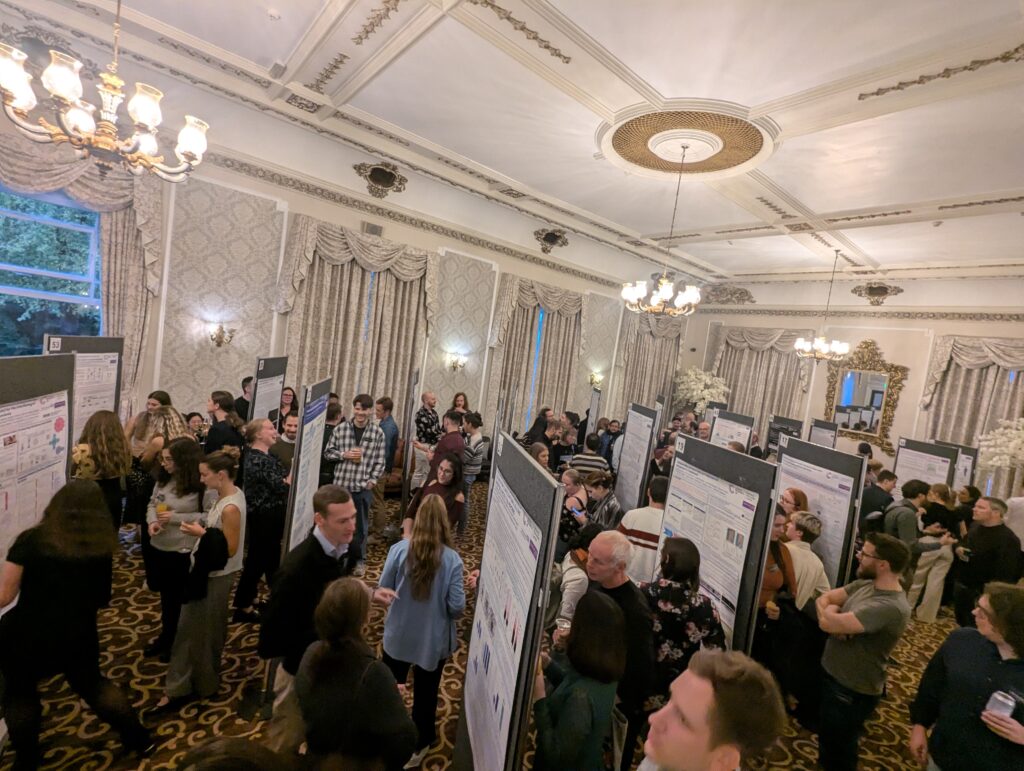
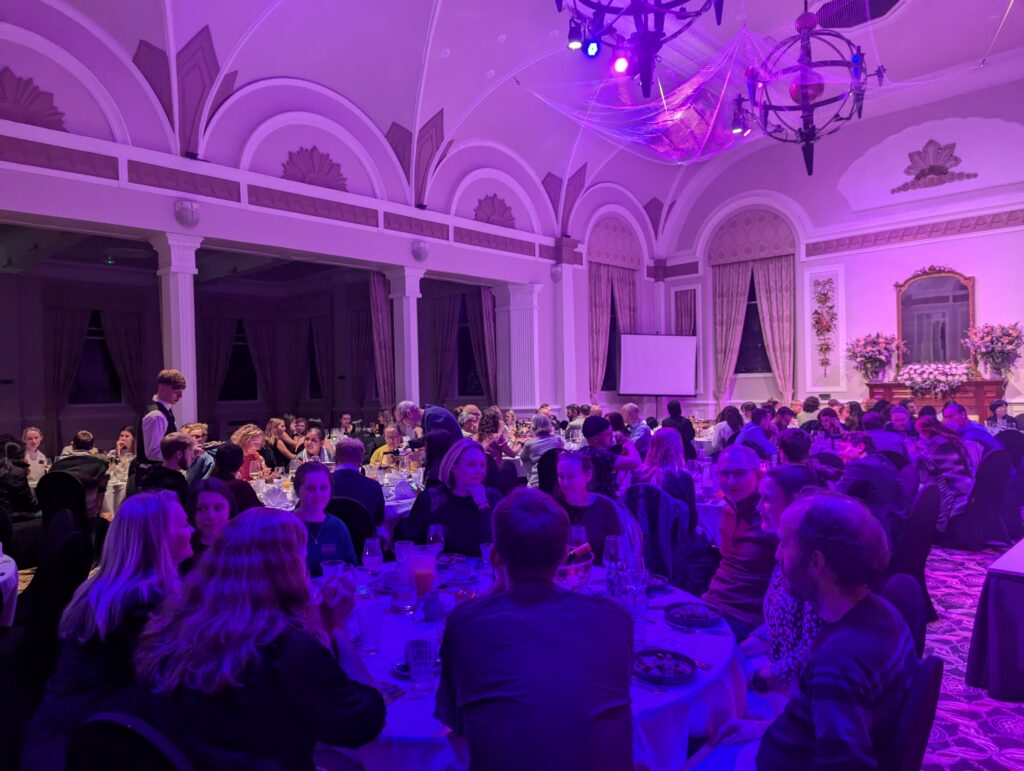
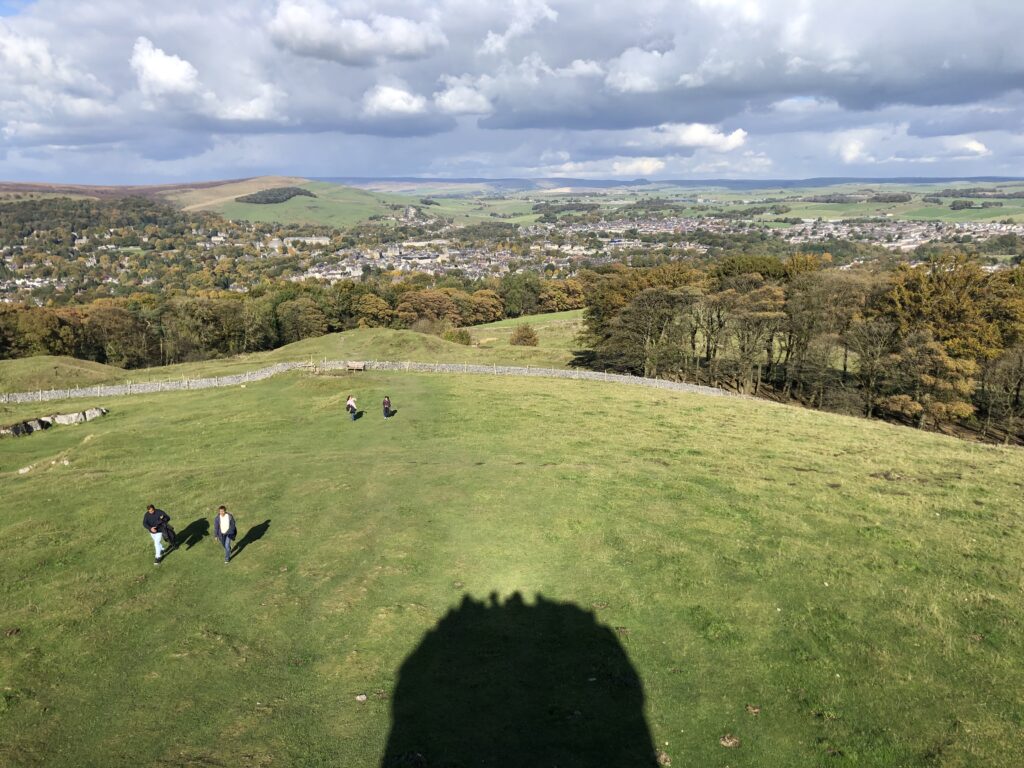
Jos Jonkers, a good friend of the Institute who sits on our Scientific Advisory Board, spoke about genetically engineered and patient-derived xenograft models of human cancer as powerful preclinical in vivo platforms that allow us to study the mechanisms underlying drug response and acquired resistance.
Margaret Frame, a longstanding and much respected cancer scientist on the British scene, gave a fascinating overview of 30 years’ work on the integrin adhesome in cancer. She has made important contributions to the understanding of cell biology that shines a light on how cells control their genes and whether these features go awry in cancer.
We also welcomed to the event Sylvain Delaunay, currently based at the German Cancer Research Center (DKFZ) in Heidelberg, who will be joining us in January 2025 as a new Junior Group Leader. He gave an absorbing talk on the epitranscriptome driving tumour cell state transition, showing how palmitic acid is an inducer of motile transition in a breast cancer xenotransplantation model that sparked many questions. We look forward to his arrival at the Institute in the New Year.
Our recent experience with hosting virtual and hybrid events has enabled us to diversify the programme and invite external guests. The alumni session has now become a firm favourite at the colloquium and this year we were inspired by the different career journeys of Adrian Blanco Gomez (Principal Scientist at BiVictriX Therapeutics), Ben Abbott (Executive Editor at The Lancet) and Zoi Diamantopoulou (Junio Group Leader at CRUK Scotland Institute).
The introduction of elevator pitches for posters has also been adopted onto our programme as a regular feature. Ten pitches were shortlisted from nearly 80 poster abstracts! These brave ten individuals then encouraged us to visit their poster with a 90 second pitch on their project. Despite the obvious pressure, everyone delivered within time.
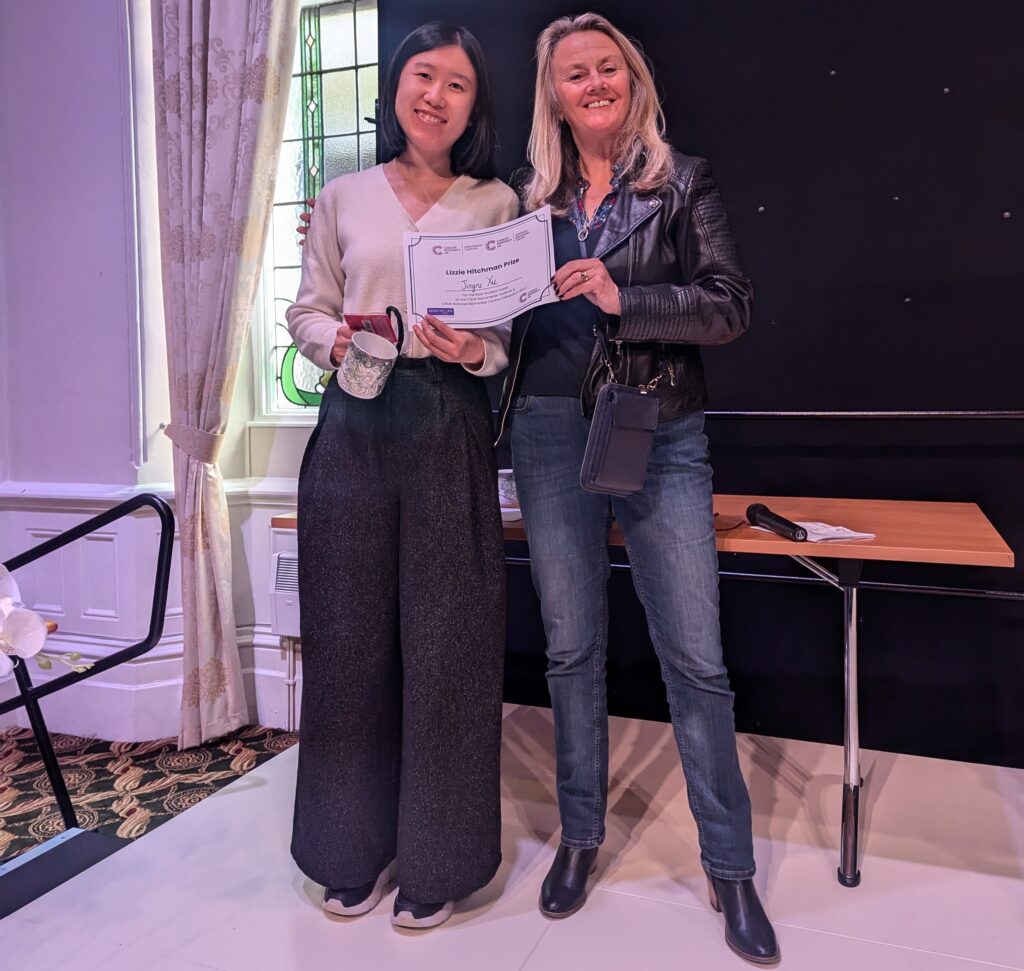
When it came to the poster sessions, it was clear how much we enjoy sharing our science with colleagues. The event was very animated as our researchers proudly stood by their posters and discussed their projects.
As always, the quality of the posters was outstanding, making it hard work for the panel of judges to choose winners for the two prizes. The Lizzy Hitchman Prize for the best poster by a PhD student was awarded to Jingru Xu from the Stem Cell Biology group for her project on the role of immune modulator interferon regulatory factor 2 binding protein 2 (IRF2BP2) in AML.
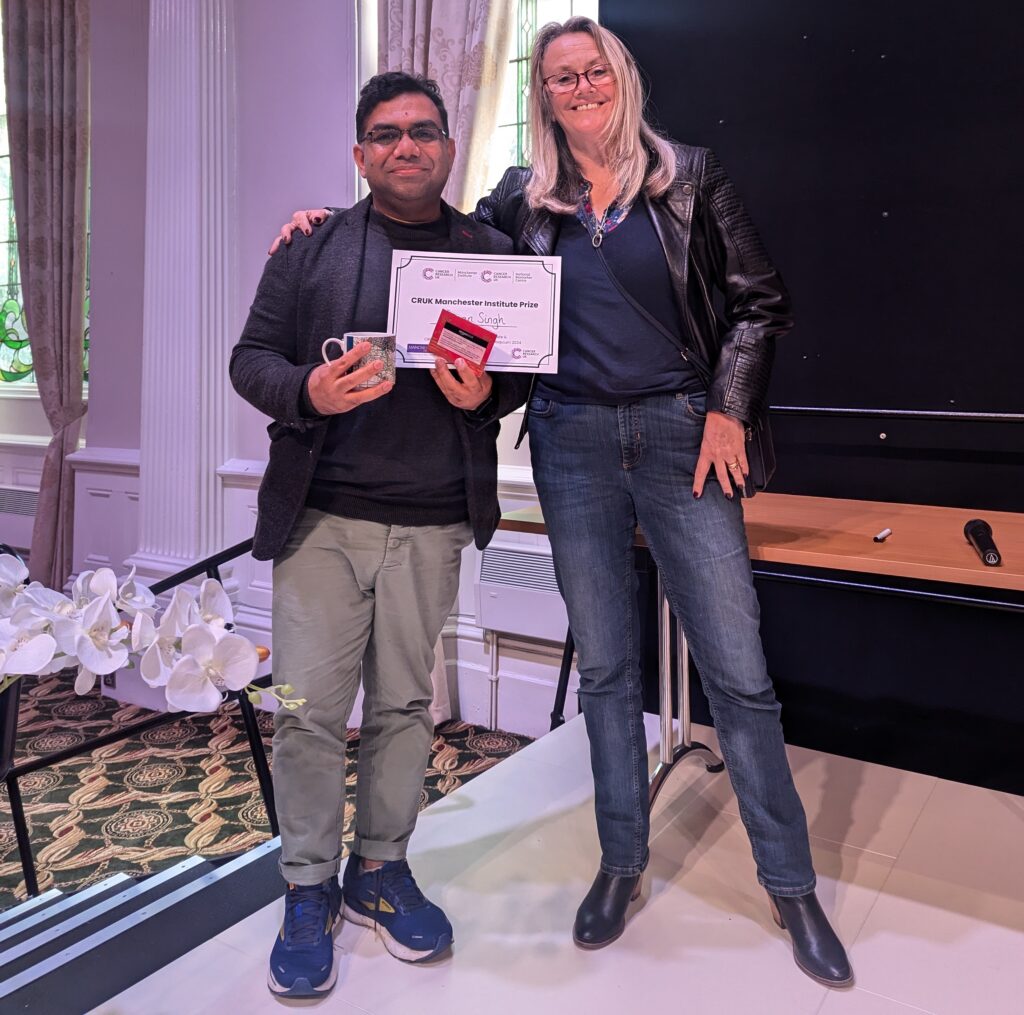
The Best Poster Prize for a scientific officer went to Pawan Singh of the Cell Division group for his outstanding work on converting rising cdk1-cyclin b levels into a switch for mitotic commitment via feedback control from the fission yeast spindle pole body.
There was also a prize for Best Elevator Pitch, which went to Charlotte Russell of the Skin Cancer and Ageing group for her speedy introduction on how melanoma brain metastases are supported by age-specific stromal factors. Well done everyone!
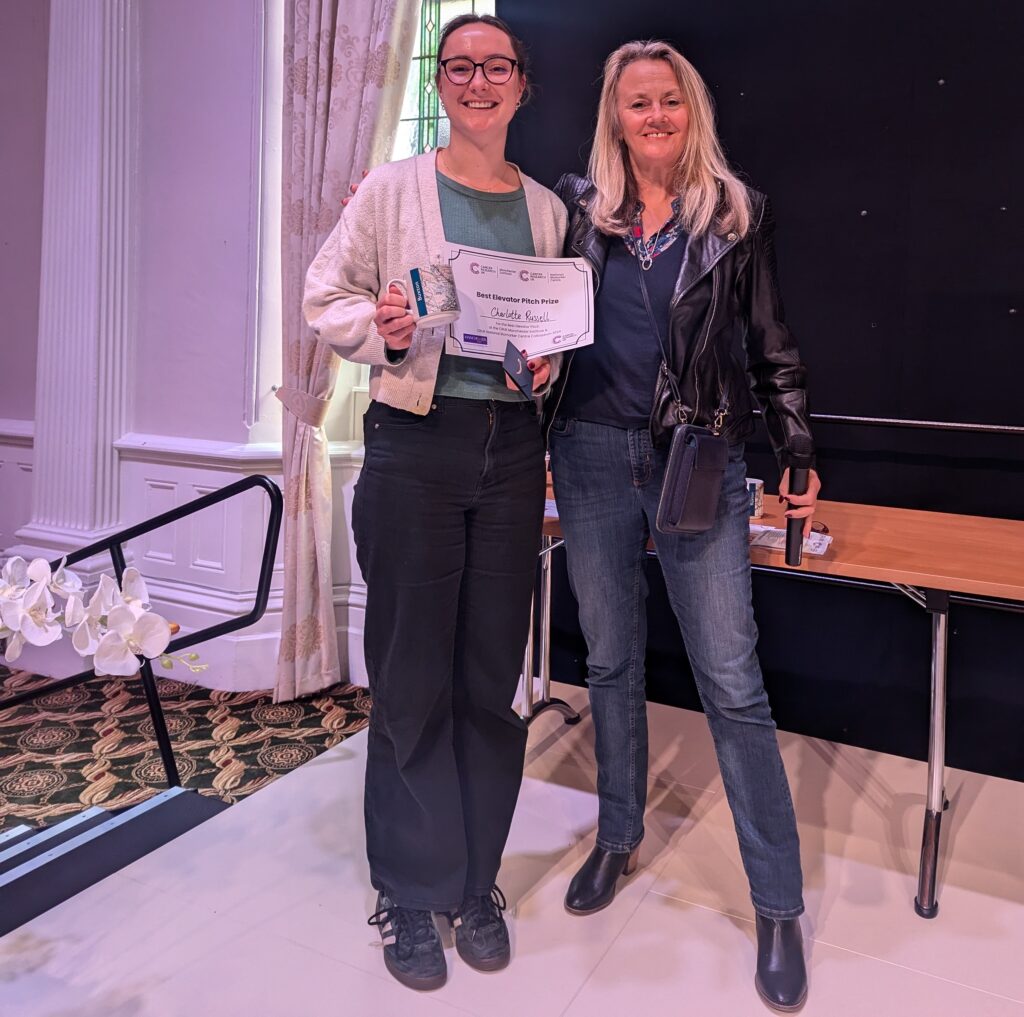
And finally, it would not be a colloquium without the all-important socialising element. On the first evening we enjoyed a spectacular Gala Dinner, and during the afternoon the following day, staff chose to either join the hike or play board games together. Everyone gave glowing feedback and claimed it was the best colloquium ever!
We thought it fitting and rewarding to hold our event in the Peak District – given the metaphorical peaks we have conquered over the last six years! Overall, the joint MI and NBC Colloquium 2024 was a huge success, with lots of engagement, interesting discussions, and many questions asked and answered.
We look forward to our next colloquium. Thank you everyone!



